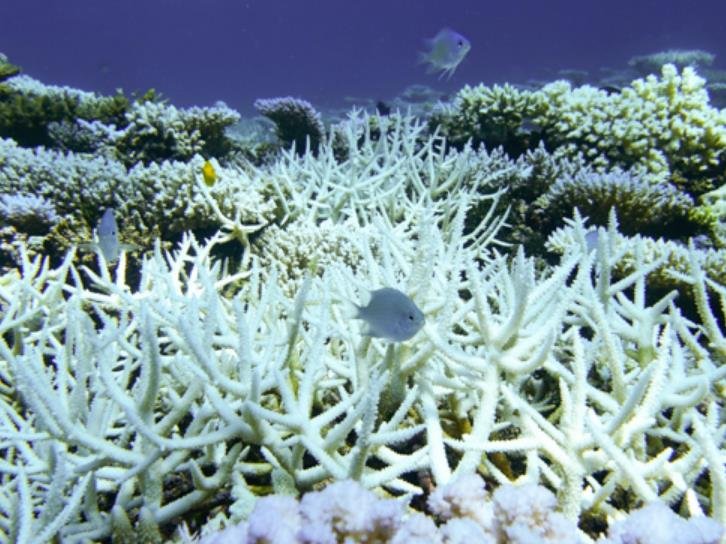The Great Barrier Reef, one of the world’s most iconic natural wonders, has been declared to have suffered a “death blow” by leading climate scientist Dr. Joëlle Gergis. Speaking at the Climate Change and Business Conference in Auckland, Dr. Gergis highlighted the extensive bleaching that has affected 80% of the reef, marking the first time such widespread damage has been recorded. This alarming development underscores the urgent need for global action to address climate change and protect vulnerable ecosystems.

Unprecedented Bleaching Events
The Great Barrier Reef has experienced five mass bleaching events in the past eight years, with the most recent one being the most severe. Bleaching occurs when corals, stressed by warmer ocean temperatures, expel the algae living in their tissues, causing them to turn white. While bleached corals can recover if temperatures drop, prolonged exposure to high temperatures can lead to their death.
Dr. Gergis emphasized that the extent of the bleaching this year is unprecedented, with damage extending across the entire reef. This widespread bleaching is a clear indicator of the impact of climate change on marine ecosystems. The reef, which stretches over 2,300 kilometers along Australia’s northeastern coast, is home to a diverse array of marine life and is a crucial part of the global ecosystem.
The loss of the Great Barrier Reef would have far-reaching consequences, not only for marine biodiversity but also for the millions of people who rely on it for their livelihoods. The reef supports a thriving tourism industry, provides coastal protection, and plays a vital role in the health of the ocean.
The Role of Climate Change
Climate change is the primary driver of the bleaching events affecting the Great Barrier Reef. Rising global temperatures, driven by increased greenhouse gas emissions, are causing ocean temperatures to rise. This, in turn, leads to more frequent and severe bleaching events. Dr. Gergis pointed out that even if global warming is limited to 1.5 degrees Celsius, as outlined in the Paris Agreement, only 1% of the world’s coral reefs are expected to survive.
The situation is exacerbated by other human activities, such as coastal development, pollution, and overfishing, which further stress the reef. Dr. Gergis called for immediate and decisive action to reduce greenhouse gas emissions and mitigate the impacts of climate change. She stressed that relying on unproven technologies, such as carbon capture and storage, is risky and that the focus should be on reducing emissions at the source.
The scientific community is in agreement that urgent action is needed to protect the Great Barrier Reef and other vulnerable ecosystems. Failure to act will result in the loss of these natural wonders and the services they provide, with devastating consequences for both the environment and human societies.
Hope for the Future
Despite the grim outlook, there is still hope for the Great Barrier Reef. Dr. Gergis highlighted that solutions for up to 80% of the planet’s greenhouse gas emissions already exist. Renewable energy sources, such as wind and solar power, offer a viable alternative to fossil fuels. Additionally, efforts to protect and restore marine ecosystems can help build resilience against the impacts of climate change.
Community-led conservation initiatives are also playing a crucial role in protecting the reef. Local communities, scientists, and conservation organizations are working together to implement sustainable practices and raise awareness about the importance of the reef. These efforts are essential for ensuring the long-term survival of the Great Barrier Reef.
The international community must also step up its efforts to combat climate change. Stronger policies, increased funding for conservation, and greater collaboration between nations are needed to address this global challenge. By taking bold and decisive action, it is possible to protect the Great Barrier Reef and ensure that future generations can continue to marvel at its beauty.
















